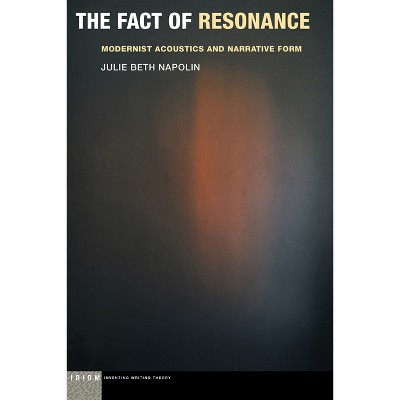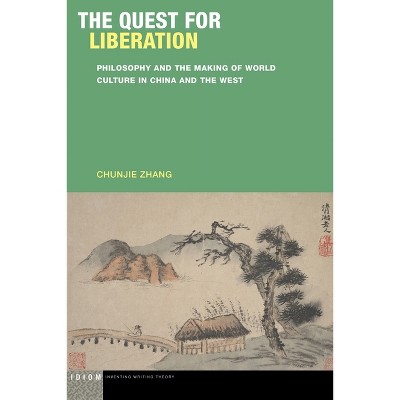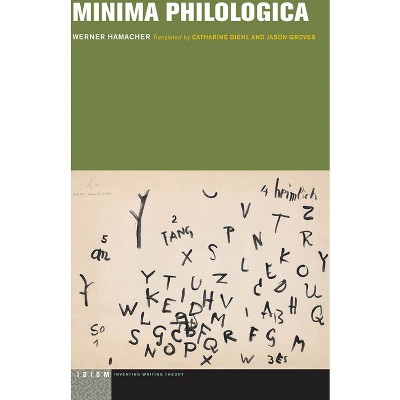In the Beginning Was the State - (Idiom: Inventing Writing Theory) by Adi M Ophir (Paperback)

About this item
Highlights
- This book explores God's use of violence as depicted in the Hebrew Bible.
- About the Author: Adi M. Ophir is a Visiting Professor at the Cogut Institute for the Humanities at Brown University and Professor Emeritus at Tel Aviv University.
- 336 Pages
- Political Science, History & Theory
- Series Name: Idiom: Inventing Writing Theory
Description
About the Book
This book explores God's use of violence as depicted in the Hebrew Bible. Ophir shows how the Bible's varied formations of divine violence anticipate the main outlines of the modern European state. A critique of the modern state, the book argues, must begin in unpacking its mostly repressed theological dimension.Book Synopsis
This book explores God's use of violence as depicted in the Hebrew Bible. Focusing on the Pentateuch, it reads biblical narratives and codes of law as documenting formations of theopolitical imagination. Ophir deciphers the logic of divine rule that these documents betray, with a special attention to the place of violence within it. The book draws from contemporary biblical scholarship, while also engaging critically with contemporary political theory and political theology, including the work of Walter Benjamin, Giorgio Agamben, Jan Assmann, Regina Schwartz, and Michael Walzer.
Ophir focuses on three distinct theocratic formations: the rule of disaster, where catastrophes are used as means of governance; the biopolitical rule of the holy, where divine violence is spatially demarcated and personally targeted; and the rule of law where divine violence is vividly remembered and its return is projected, anticipated, and yet postponed, creating a prolonged lull for the text's present. Different as these formations are, Ophir shows how they share an urform that anticipates the main outlines of the modern European state, which has monopolized the entire globe. A critique of the modern state, the book argues, must begin in revisiting the deification of the state, unpacking its mostly repressed theological dimension.From the Back Cover
"Ophir's fascinating study of divine violence turns political theology upside down. Where others saw a solution, he sees a problem, identifying three distinct theocracies offered by the Pentateuch, in which the acceptance of God's rule is combined with extreme violence. Articulating the archaic and the modern in the state as a political form of governmentality, he analyses our subjection to the law in a radically new manner."--Etienne Balibar, author of Violence and Civility
"Ophir's analysis of violence in the Bible goes beyond any I've seen. Not everyone will agree with Ophir's conclusions, but the book must be read, digested, and confronted by anyone interested in political theology."--Daniel Boyarin, University of California, Berkeley This book explores God's use of violence as depicted in the Hebrew Bible. Focusing on the Pentateuch, it reads biblical narratives and codes of law as documenting formations of theopolitical imagination. Ophir deciphers the logic of divine rule that these documents betray, with a special attention to the place of violence within it. The book draws from contemporary biblical scholarship, while also engaging critically with contemporary political theory and political theology, including the work of Walter Benjamin, Giorgio Agamben, Jan Assmann, Regina Schwartz, and Michael Walzer. Ophir focuses on three distinct theocratic formations: the rule of disaster, where catastrophes are used as means of governance; the biopolitical rule of the holy, where divine violence is spatially demarcated and personally targeted; and the rule of law where divine violence is vividly remembered and its return is projected, anticipated, and yet postponed, creating a prolonged lull for the text's present. Different as these formations are, Ophir shows how they share an urform that anticipates the main outlines of the modern European state, which has monopolized the entire globe. A critique of the modern state, the book argues, must begin in revisiting the deification of the state, unpacking its mostly repressed theological dimension. Adi M. Ophir is professor emeritus at Tel Aviv University and visiting professor at the Cogut Institute for the Humanities and the Center for Middle East Studies at Brown University. His books include Goy: Israel's Multiple Others and the Birth of the Gentile (with Ishay Rosen-Zvi), The One State Condition: Democracy and Occupation in Israel/Palestine (with Ariella Azoulay), and The Order of Evils: Toward an Ontology of Morals.Review Quotes
Ophir's analysis of violence in the Bible goes beyond any I've seen. Not everyone will agree with Ophir's conclusions, but the book must be read, digested, and confronted by anyone interested in political theology.---Daniel Boyarin, University of California, Berkeley
Ophir's fascinating study of divine violence turns political theology upside down. Where others saw a solution, he sees a problem, identifying three distinct theocracies offered by the Pentateuch, in which the acceptance of God's rule is combined with extreme violence. Articulating the archaic and the modern in the state as a political form of governmentality, he analyses our subjection to the law in a radically new manner.---Etienne Balibar, author of Violence and Civility
About the Author
Adi M. Ophir is a Visiting Professor at the Cogut Institute for the Humanities at Brown University and Professor Emeritus at Tel Aviv University. Among his works are Goy: Israel's Multiple Others and the Birth of the Gentile, co-authored with Ishay Rosen-Zvi (Oxford University Press, 2018); Divine Violence: Two Essays on God and Disaster (The Van Leer Institute, 2013); The One-State Condition, co-authored with Ariella Azoulay (Stanford University Press, 2012); and The Order of Evils: Toward an Ontology of Morals (Zone, 2005).










